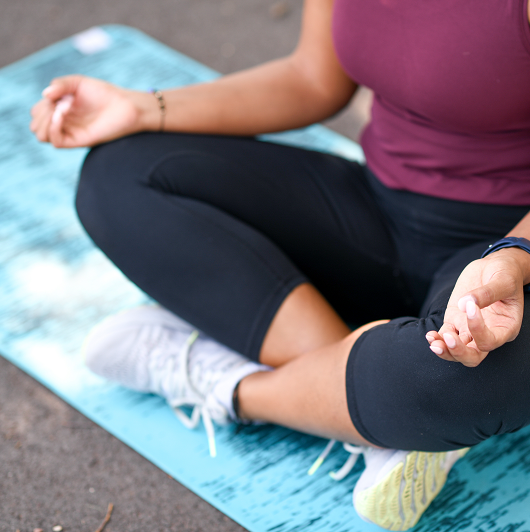Addiction Recovery: Tips to Manage Cravings

December 20, 2022
Battling addiction to drugs, alcohol, nicotine or other substances is very challenging, while it can sometimes seem like a never-ending uphill fight, there are coping methods you can use to ward off cravings.
What causes cravings during addiction recovery?
Using addictive substances, like opioids, changes the chemicals in your brain. When using the drug, your brain is flooded with dopamine, the chemical associated with pleasure. Eventually, this will inhibit and diminish your body’s natural production of these chemicals as a balance. Your body will then crave that drug and its sensation in order to essentially hit a baseline of feeling “normal”.
“After a patient has detoxed, that physical craving will decrease in frequency and severity, however cravings may never go away completely, which is why it’s important to know your triggers and how they play out in one's day-to-day life,” shares psychiatrist, Tony Raj Juneja, M.D.
Dr. Juneja shares tips to help aid in your addiction recovery:
1. Know that cravings will pass.
First, understand that while these urges are strong, they will pass, typically in about 5-30 minutes.
Many addiction specialists urge people to ‘surf the urge’ and accept that these urges will come in waves and take the necessary steps to ward them off.
2. Identify your goals and keep them on hand.
Make a list of all the reasons you quit and all the potential negative outcomes that could happen to you if you start using again.
Keep this list handy at all times to remind yourself of your ultimate goal.
3. Be consistent in treatment and therapy.
Cognitive behavior therapy (CBT) is a commonly used form of psychological treatment for addiction recovery. CBT utilizes techniques to help redirect your focus away from the cravings.
“Counseling, sponsors, group therapy and individual therapy are all key components to help patients stay on track,” adds Dr. Juneja. “It’s important to have trusted sources you can call on when you’re battling thoughts that can hurt your chances of recovery.”
4. Explore new passions.
Find other ways to distract your mind, especially when you need to fill some down time. Take up a hobby like:
- Sports
- Cooking
- Reading
- Drawing or painting
- Dancing
- Hiking
- Photography
- Fishing
- Puzzles
- Video games (be mindful that video games and social media can have addictive qualities)
- Listen to soothing music
- Meditation (or other meditative practices, i.e. float therapy)
- Yoga
5. Exercise regularly.
It is crucial to get as much exercise as you can, this will stimulate your mind and body, and create routines and structure in your week that help stay on track. Regular aerobic exercise and eating a healthy diet play a large role in helping fight addiction through self-care.
6. Practice meditation and breathing techniques.
Throughout the recovery process, it is important to reduce stress, anxiety and encourage a sense of emotional balance. One of the best ways of doing this is practicing simple relaxation techniques to focus on your breathing, taking deep breaths when you are feeling any urges. Meditation also is a wonderful way to feel refreshed and invigorated any time of the day.
7. Identify a trusted support system.
Another very helpful tool on the road to successful and long-term recovery is to maintain safe, emotionally supportive relationships. The individuals you are connected to often can play a key role in helping you through any crisis.
Whether it is a friend, family member, co-worker or neighbor, share your concerns with them and let them help support you through your recovery journey. It is important to remember that it often takes many attempts at recovery to achieve success, and managing cravings with coping skills is a foundation of success.
Next Steps & Resources:
- Meet our source: Tony Raj Juneja, M.D.
- To make an appointment with a health care provider near you, call 800-822-8905 or visit our website.
The material provided through HealthU is intended to be used as general information only and should not replace the advice of your physician. Always consult your physician for individual care.






